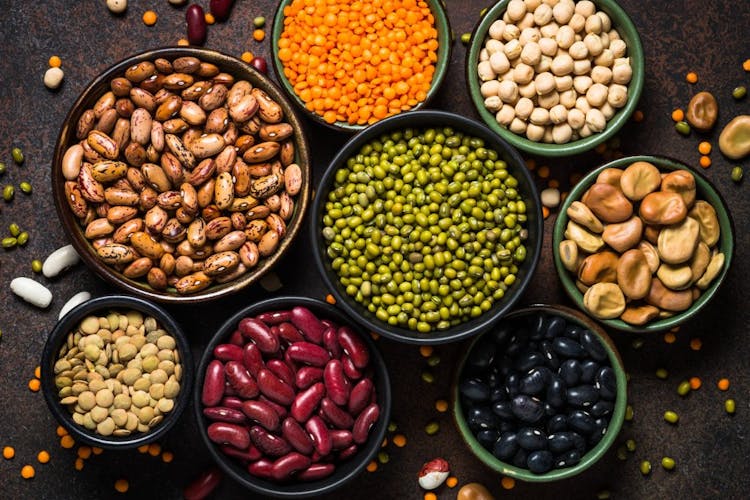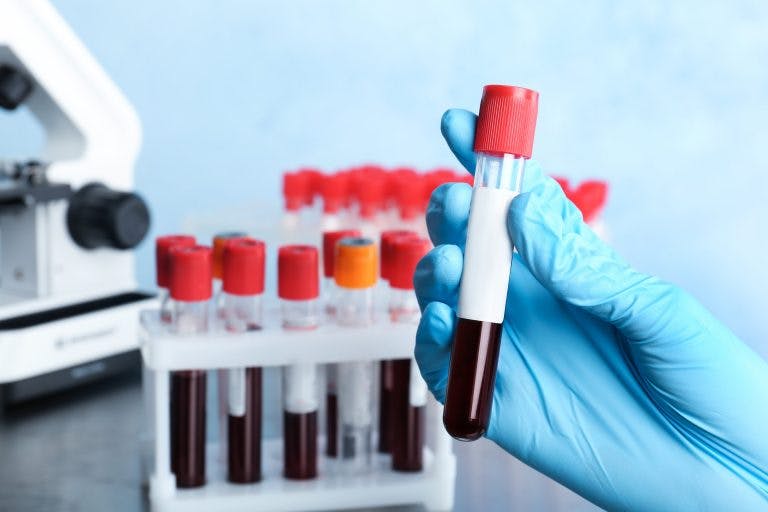Reviewed by Dr Angelica L Dumapit and Physician Chu I Ta on June 26, 2022
Best Tips to Protect Yourself Against Blood Disorders
Published | 8 min read
There are many different types of blood disorders and all range in severity. Luckily, there are also many ways to keep your blood healthy. Here's how.
If you are young or relatively healthy, you might not think you need to be concerned about blood disorders.
However, much like the oil that runs through your car, your blood controls how well your body functions. When there is something wrong with your blood, it can affect your entire health.
This article discusses the importance of keeping your blood healthy and how to protect yourself against common blood disorders.
What Are Blood Disorders?
Blood disorders occur when one or more of these parts stop working properly. This can be due to genetic problems, certain medications, a nutritional deficiency, or as a result of another health complication.
There are many different types of blood disorders. Some go away with therapy or do not cause symptoms that affect your quality of life. These are known as benign. Others are chronic and can be fatal, such as blood cancers and sickle cell disease.
Symptoms

White blood cells are the defenders of the body, so if there’s a disorder, symptoms may include fever, inflammation, and frequent infections.
Meanwhile, platelets are responsible for clotting when you have cuts. A disorder would cause excessive bleeding. These are also common with red blood cell disorders.
Blood Disorders: Why Is Blood Important?
In
Instead of studying the blood at the cellular level, TCM sees the Blood as more of a physical form. Blood is inseparable from the Qi. In addition to the physical function of blood cells, the Blood in TCM perspective also acts as a vehicle to assist the transportation of the Qi.
Thus, there is a quote saying, “Qi is the marshal of the Blood and Blood is the mother of Qi.” The relationship between Qi and Blood is inseparable, like two sides of a coin, interdependent on each other, in some respects like
Where does Blood come from?
Blood mainly originates from Food Essence and Jing (the essence of life associated with the growth and development of the body).
First, digested food is turned into Food Essence by the Stomach and Spleen’s transforming functions. It is then transported upwards by the Spleen to the Lungs where it turns into Blood with the help of the Heart and Lungs.
Eating a balanced and healthy diet is extremely important because of the Spleen’s role in the production of Qi and Blood. The Spleen is considered the post-natal basis of life.
A second source of Blood comes from Jing, which is stored in the Kidneys. Jing is stored in the Kidney and inherited from one’s parent. It is Yin in nature and carries with it the inherited characteristics of the parents.
Jing travels to the bones where it turns into healthy and strong marrow. The marrow in turn produces the Blood. Jing also goes to the Liver to be transformed into clear Blood.
What does Blood do?
Blood has the functions of nourishing and moistening the body, transporting turbid Qi for excretion, and fuelling mental activities and sound sleep. The Blood in TCM helps to harbor the mind and nourish and moisten the body organs.
For example, if a person is deficient in Blood, they may suffer from insomnia, poor concentration, and forgetfulness. Blood is needed for nourishing the mind for mental work as well as sound sleep.
Common Blood Disorder Symptoms, According To TCM
Blood disorders may affect various parts of the body differently. Here are some common symptoms of blood disorders, according to TCM:
Malnourished skin, nails, hair, muscles, and bones
According to TCM Physician
Without sufficient nourishment from the Blood, organs and tissues cannot function normally, resulting in an unhealthy glow in the skin, cheeks, and hair. Nails, muscles, and bones also rely on blood nourishment to remain strong and healthy.
Problems with body movement and sensation
Blood is needed to maintain healthy body movements and sensations. According to Huang Di Nei Jing, a famous Chinese medicine text from the Han dynasty, “Having received sufficient Blood, the Liver can support healthy eyesight; feet can walk; the palm can grasp hold of things, and the fingers can pick up things.”
This illustrates Blood’s importance in healthy muscle movement and sensation. Therefore, Blood disorders can lead to dizziness, vertigo, ringing in the ear (tinnitus), or limb weakness.
Insomnia and poor memory
A good blood supply is important for mental health. With sufficient blood nourishment, a clear mind, good spirit, fast thought processes, and swift reaction times are possible.
According to TCM, Deficiency of Blood leads to poor memory and insomnia. In serious cases, it causes mental disorders and psychiatric diseases.
Irregular periods and menstrual problems
A woman’s monthly menstrual cycle heavily involves the regulation and discharge of Blood in the body. Any poor function of the blood, like
In TCM, Blood Deficiency and Stagnation may lead to irregular flow of period, menstrual pain, and side symptoms, like fatigue, lower back soreness, headache, and weak limbs.
How To Use TCM To Prevent Blood Disorders
According to Physician Chu, “There are two major aspects we should look into when seeking TCM support for Blood health.” These include:
Strengthen your Spleen digestive system

Since we know digested food essence is one of the original sources of Blood, searching for the right food to supplement our Blood is very necessary.
From a nutrition point of view, focus on eating foods high in iron, B12, folic acid, vitamin C, and protein.
However, it should be noted that you should not eat fava beans if you have G6PD, which is also a blood disorder. They contain compounds called vicine and convicine that disrupt red blood cell walls.
Animal meat is also a good way to build your Blood. The iron in meat is more easily absorbed than the iron found in veggies.
Recommended TCM Herbs as medicine:
- Angelica (Dang Gui)
- Wolfberry (Gou Qi Zi)
- Astragalus (Huang Qi)
- Ginseng (Ren Shen)
- Rehmannia glutinosa (Shou Di Huang)
Tonify your Kidney Essence Jing and Liver Blood
The Kidney is regarded as one of the most important organs in TCM. It is known as the prenatal basis of life as it stores essence
An abundance of essence Jing increases as puberty sets in, reaching a peak at the physical prime age of our twenties and thirties, when our bodies are strongest and full of energy. This ensures the supply of our blood to provide the above growth.
During menopause for women and andropause for men, the essence starts to decline. This results in less Blood to nourish our body’s physical form, resulting in white and thin hair, loose teeth, weaker bone, poorer complexion, and memory problems.
The Liver has the function of dredging and regulating in TCM. It ensures the pathway of Qi and Blood is smooth. Healthy Qi flow can lead to a good Blood flow, which will help to promote circulation of Blood and metabolism, assist the Stomach in digestion and regulate mental activity. The Liver also stores the Blood and helps to regulate the blood flow during menstruation.
Recommended TCM Herbs as medicine:
Mulberry (Sang Shen)- Black date (Hei Zao)
- Black Sesame (Hei Zhi Ma)
- Dried Longan (Long Yan Gan)
- Polygoni Multiflori Radix (He Shou Wu)
- White Peony (Bai Shao)
Consult With A TCM Physician If You Have A Blood Disorder
The above-recommended herbs are safe for general conditions. However, in order to achieve a better effect, seeking advice from your TCM practitioner based on the differentiation of syndrome is very necessary. Never try to self-medicate if you think you have a blood disorder!
The definition of Blood in TCM indeed has a wider definition and provides a more holistic alternative and solution for addressing blood disorders. However, it’s always best to seek treatment from your doctor if you think you may have symptoms.
References
- NIH. Blood Diseases.
- Cleveland Clinic. Blood Disorders.
- National Library of Medicine. 2006. Drugs and Lactation Database: Fava Beans.
Share this article on

